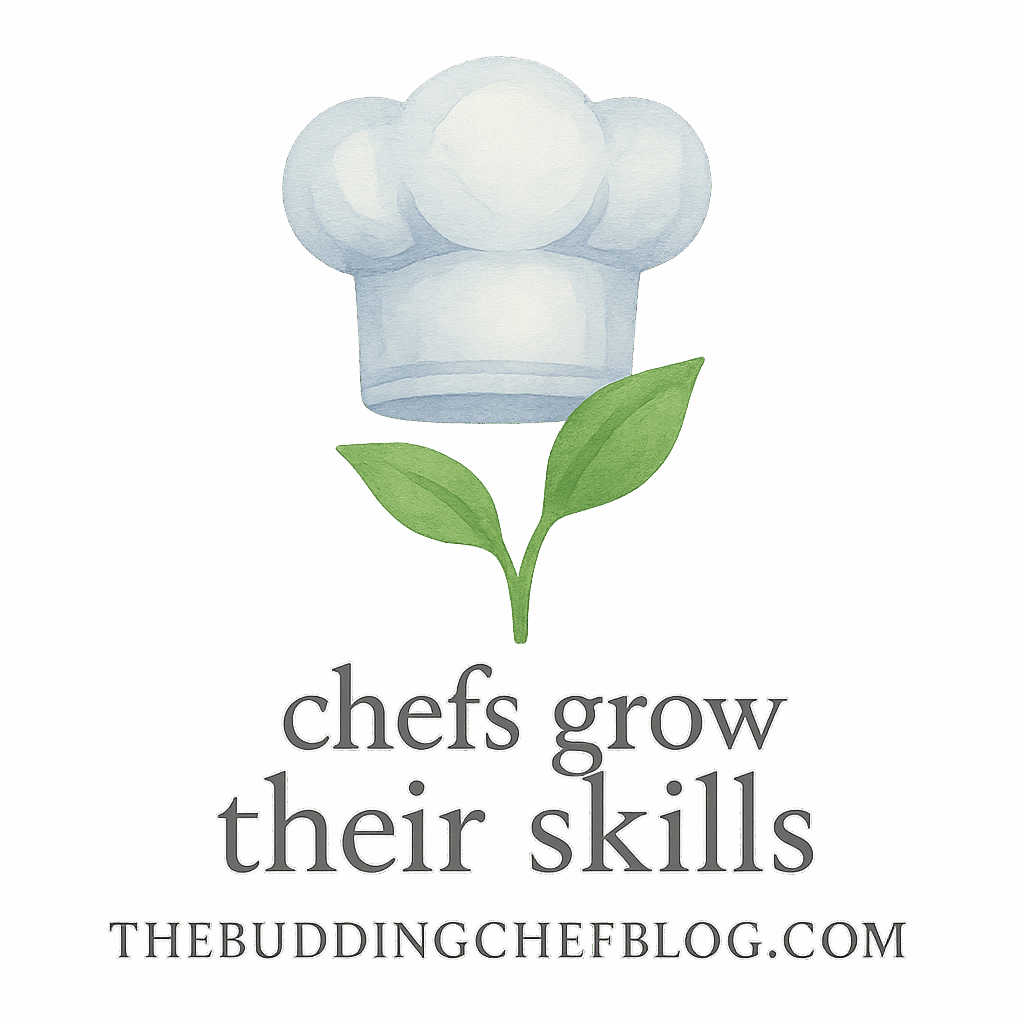Start cooking up success! For beginner chefs, the kitchen isn’t the only place you need to knead skills—it’s also where you knead connections. Networking can be the secret sauce to unlocking doors in the culinary world, from job opportunities to mentorship. So let’s simmer down and explore six tasty networking tips designed just for you. 🍳
Why Networking Matters for Beginner Chefs
Networking isn’t just for suits in boardrooms—it’s essential for culinary professionals too. Building connections can help you:
- Discover new job or internship openings
- Learn fresh techniques from seasoned chefs
- Get honest feedback on your dishes
- Gain exposure through partnerships and events
Think of it this way: a beautifully baked cake isn’t enough—you need people there to taste it (and talk about it). When you network, you get the visibility that turns your passion into progress.
Tip 1: Attend Local Culinary Events and Meetups
Finding the Right Culinary Events
Attend food festivals, cooking classes, farmers’ markets, and culinary meetups in your area. Check out platforms like Eventbrite or Meetup and look for terms like beginner chefs, pop-up dinners, or food networking. You’ll also want to tap into local chef groups and cooking communities tagged under cookingchefs, beginnerchefs, or meal‑planning.
How to Introduce Yourself with Confidence
Imagine walking into a buzzing event—your heart races, but here’s a tip: introduce yourself clearly and briefly. Try: “Hi, I’m [Name], a starter chef exploring professional growth.” Add a question, such as asking about the other person’s favorite ingredient or technique. It breaks the ice and shows genuine curiosity.
Tip 2: Leverage Social Media and Online Communities
Using Instagram, Facebook, and TikTok
Your dishes can shine online! Post beautiful photos, prep videos, or kitchen mishaps—people love behind-the-scenes. Use tags like #cooking, #cookware, #ingredients, or #beginnerchefs. Share reviews of your favorite kitchen gadgets or new tools from kitchen-tools-equipment pages. Don’t just post—comment and engage. Every “Nice plating!” reply is a chance to grow a connection.
Joining Online Chef Groups and Forums
Online communities—like Facebook groups for cooking-chefs or Reddit forums—are full of support. Ask for feedback (“Does anyone struggle with ingredient timing?”), share resources (“Check out this affordable tool!”), and you’ll be welcomed into a network of peers and mentors.
Tip 3: Volunteer in Industry Events and Camps
Benefits of Volunteering
Volunteering at food festivals, charity dinners, or cooking camps is a fast track to networking. You’ll be working alongside established chefs and kitchen staff, showcasing your work ethic and attitude. Plus, future contacts may remember the chef who showed up early and worked hard.
How to Find Opportunities
Look at local culinary schools or food nonprofits seeking volunteers. Browse community boards tagged affordable, budget, challenges—and pitch your help. Even one memorable volunteer shift can open doors to job referrals or invitations to collaborate.

Tip 4: Build Genuine Relationships in the Kitchen
Connecting with Peers and Mentors
Every job or class teams you up with others—peers and more experienced chefs. Be open and kind: help someone with plating, ask to swap tips, chat during breaks. These small gestures build solid rapport.
Effective Communication Strategies
Want to bond deeper? Ask for feedback in a respectful way: “Could you help me refine my sauce technique?” Offer help too—say you can prep vegetables or wash dishes. Showing you care beyond yourself speaks volumes.
Tip 5: Collaborate on Pop‑Ups, Classes & Demos
Organizing or Joining Pop-Up Events
Pop-ups are great for trial runs and connection building. Gather a few cooks, pick a theme, and promote it. Tag related blog topics like affordable cookware, beginner cooking-skills, or meal-planning to tap into audiences interested in those areas.
Teaching or Demoing to Build Authority
Lead a demo at a farmers’ market or local store. Showing your expertise builds credibility—and people will remember your name. Plus it’s another great opportunity to meet food writers, suppliers, or fellow chefs.
Tip 6: Follow Up and Maintain Relationships
Methods for Staying in Touch
Met someone at a cooking fair? Take their card and send a quick follow-up message: “Great meeting you at XYZ Fest. Loved your insight on plating!” If you met online, DM a thank-you note or share a helpful article (try linking to thebuddingchefblog.com guides).
Providing Value Over Time
Don’t just check in once—share wins, helpful resources, or shout-outs. For instance: “Hey, I used your tip on ingredient prep—result = delicious!” This shows you’re engaged and willing to give back, not just take.
The Role of Continuous Learning and Internal Resources
Basic Cooking Techniques
Strong networking needs a strong skill set. Want people to remember you? Master basics like knife cuts, sauce making, searing—the kind of skills people link to Basic Cooking Techniques and Ingredient Knowledge.
Ingredient Knowledge
Understanding spices, seasonal produce, and flavor profiles impresses mentors and makes you a go-to person during group gigs. Read up on ingredient guides—it adds authority and shows dedication.
Kitchen Tools & Equipment
Know your pots, pans, thermometers, mandolins inside-out. A chef who can recommend the best affordable cookware for beginners is instantly valuable—tie in insights from blogs covering kitchen-tools-equipment.
Overcoming Challenges in Chef Networking
Dealing with Nerves and Imposter Syndrome
Feeling like you don’t belong? Many new cooks do! One hack: prepare a “snack intro”—a short summary of your goals and interests. Practice it until it feels natural. Then take deep breaths and just begin.
Time Management and Balancing Cooking with Networking
Work and events can clash. Use a calendar—block off kitchen shifts and mark networking events, volunteer days, online meetups. A bit of planning helps prevent burnout and keeps your networking consistent.
Turning Connections into Career Opportunities
Internship and Job Referrals
A friendly chat at a demo could land you a comp shift. A mentor might pass on your resume. Don’t be shy—let people know you’re looking for paid or internship gigs. Ask: “Any kitchens you’d recommend I connect with?”
Collaborative Projects and Media Exposure
Joint classes or content collaborations (videos, recipes, blog posts) boost visibility. Tag your teammates, share on social, and mention platforms like thebuddingchefblog.com when recommending cooking-skills or cookware topics.
SEO and Social Visibility for Chefs
Using Keywords, Tags & Consistency
Be consistent with your personal brand. Use a newsletter or blog—including posts like “my favorite kitchen-tools-equipment set-up” or “ingredient knowledge 101”—and pepper tags like budget, professional, tips. This helps search engines and shows you’re a thought leader.
Aligning With Professional Growth & Budget
Show that you care about growth and affordability by linking to guides on affordable, beginner, budget, or professional cooking practices. This resonates with novices and mentors alike.
Conclusion
Networking is more than scraping for contacts—it’s about building meaningful relationships that nourish your growth. Whether it’s volunteering at events, posting your dishes online, or organizing a pop-up, each step counts. When you’re consistent, genuine, and skillful, you’ll find doors opening across kitchens, media, and mentoring circles.
The culinary world is a stew of creative people—so stir the pot, meet like-minded folks, and cook up your future, one connection at a time.
FAQs
- How do I break the ice at culinary meetups?
Start with a simple compliment or question like, “What inspired you to come?” or “Love your plating—what tool did you use?” - Are online chef groups worth joining?
Absolutely! Communities tagged cookingchefs or beginnerchefs are great for advice, camaraderie, and hidden opportunities. - What if I can’t attend events due to budget constraints?
Try free volunteer roles or virtual meetups. You can also network through posts on platforms and blogs like thebuddingchefblog.com. - How often should I follow up with a new contact?
A friendly message within a week is perfect. Thereafter, check in every few months or share helpful content. - Can small pop-up events really make a difference?
Yes! Even a backyard or local cafe pop-up can get you exposure, people talking, and maybe media coverage—especially if you link to guides on recipe-practice or cooking-skills. - Is it better to network in person or online?
Both! In-person builds deeper bonds, while online keeps your network broad and active. Blend the two for maximum impact. - How do I handle rejection in networking?
Keep it real—don’t take it personally. Some chefs are busy or overwhelmed. Keep connecting with others, refine your skills, and stay visible.


